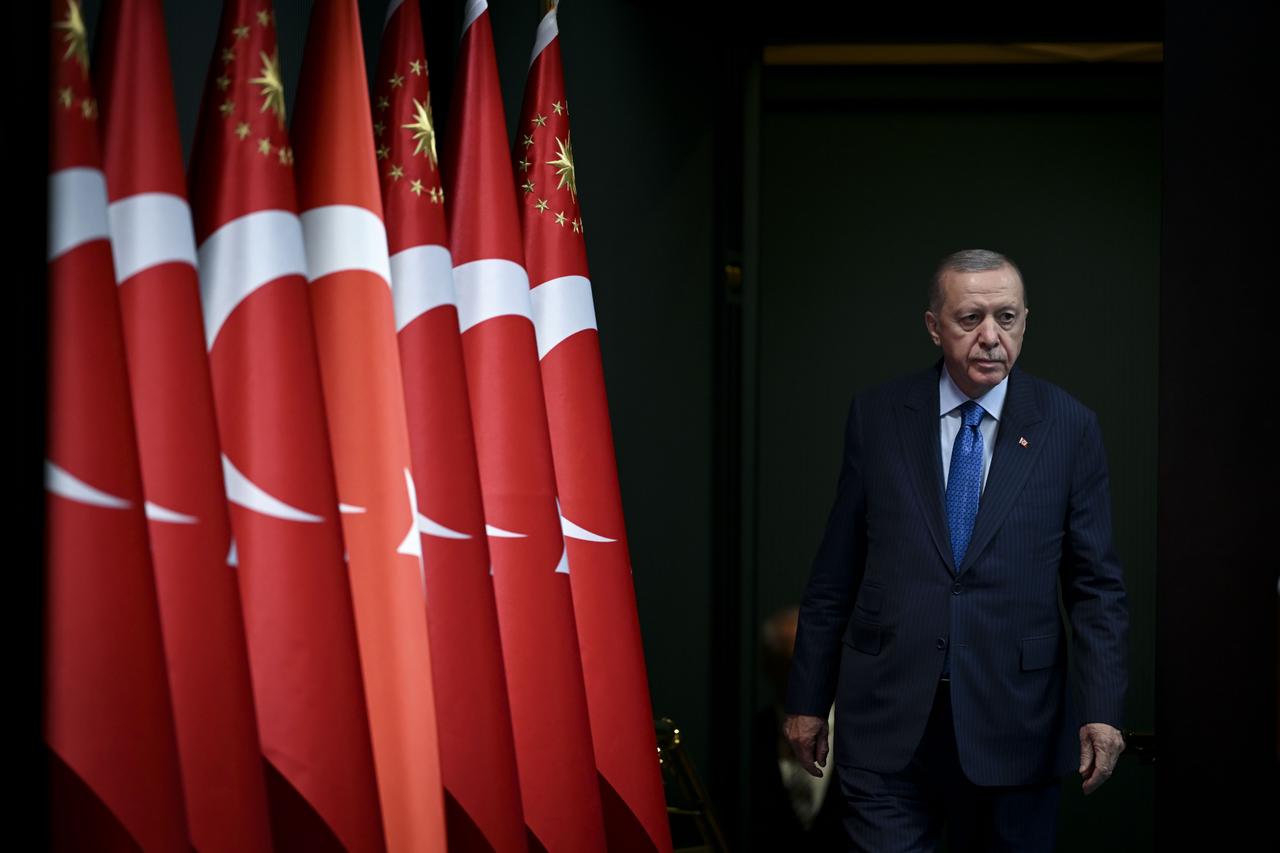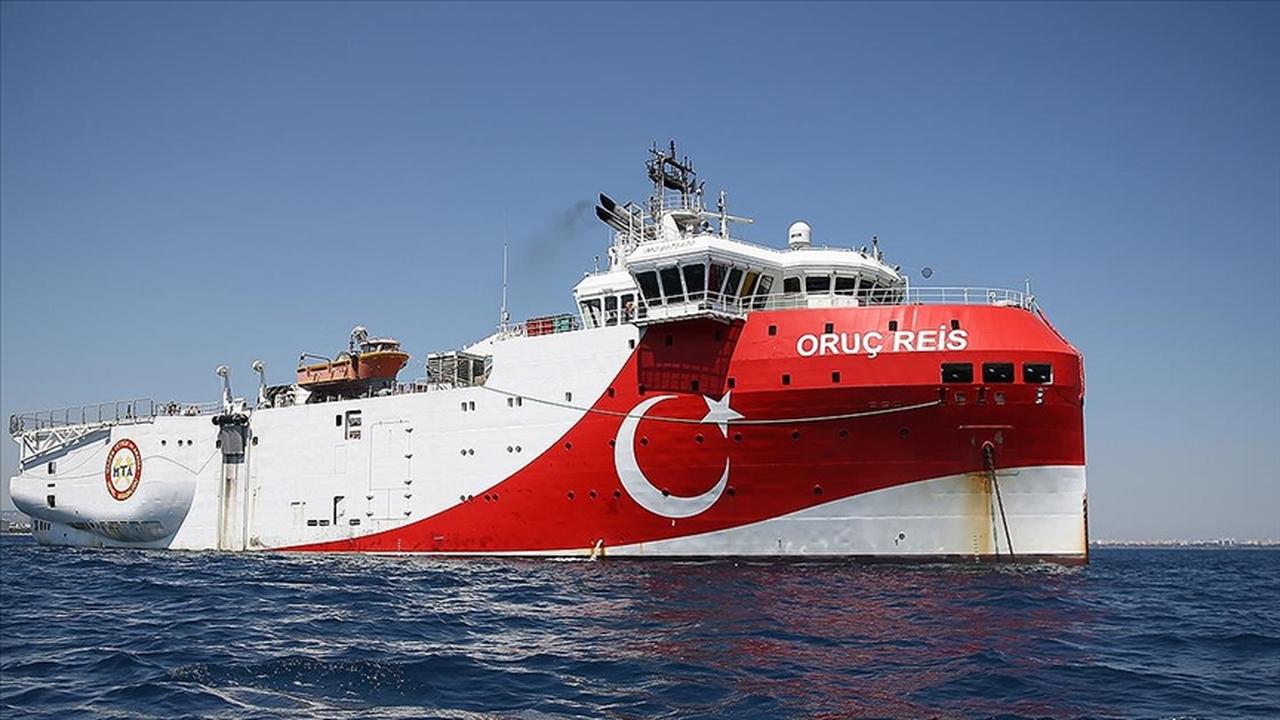

The relationship between Türkiye and Israel has been volatile for the majority of the past two decades. As key allies of the United States in the region, both had a brief period of robust security and intelligence cooperation in the late 1990s. Relations took a major blow when Israeli forces raided a humanitarian flotilla bound for Gaza in 2010, known as the Mavi Marmara incident, killing 10 Turkish citizens onboard. Türkiye downgraded diplomatic ties with Tel Aviv, and it took 12 years for normalization.
In 2022, they agreed to restore diplomatic ties, with ambassadors exchanged. This brief normalization was short-lived, as ties once again deteriorated following Hamas’ terrorist attack on Israel on Oct. 7, 2023, and Israel’s subsequent invasion of the Gaza Strip. Erdogan has been a vocal critic since the war in Gaza began and has continued to escalate rhetoric. Türkiye also openly hosts Hamas dignitaries and refutes Israel’s position that the group is a terrorist entity. There is ongoing speculation on the status of Hamas offices in Türkiye, with some officials allegedly granted Turkish citizenship.
Beyond Gaza, the Palestinian question remains highly politicized in the Turkish domestic context. Historically, all major parties in the Turkish political system have remained sympathetic to Palestinian statehood and opposed Israel’s security agenda. This was on display in Türkiye’s local elections, when the Islamic conservative New Welfare Party (YRP) campaigned on criticizing Erdogan’s government for failing the Palestinian cause and being complicit in Israel’s war in Gaza. Some analysts suggested this contributed to the ruling Justice and Development Party (AK Party) recording a historic defeat, with major urban municipalities, including former AK Party strongholds, ceding to the opposition Republican and People's Party (CHP). Erdogan’s electoral quagmire was followed by policies aimed at convincing the electorate of the government’s position on Israel and Palestine. Türkiye has since banned all trade with Israel and blocked Israel’s cooperation with NATO.
Türkiye’s rivalry with Israel is not limited to the Palestinian question. There is a wider regional rift, as Israel has developed ties with Türkiye’s regional rivals, Greece and the Greek Cypriot Administration of Southern Cyprus (GCA). The three cooperate extensively on energy, trade, tourism, and defense, pushing for dominance in the Eastern Mediterranean. Türkiye has deployed military and economic assets to counter this perceived encirclement. During the brief dialogue between the Erdogan and Netanyahu governments, the possibility that Israeli natural gas from the Leviathan fields could be transferred to Western markets via Türkiye had been entertained.
However, Israel looks firmly aligned with Greece and the administration in Greek Cyprus, and others within the East Mediterranean Gas Forum (EMGF), founded in 2020 and notably excluding Türkiye.
The rivalry has also extended into Syria, where both militaries have operated since the downfall of the Assad regime. Israel’s recent incursion into southern Syria raised the odds of a potential clash. Several countries, chiefly the United States, mediate to ensure no confrontation occurs.
This insight explores themes of rivalry, competition, tacit collaboration, and negotiation as key U.S. allies in the region. It also considers how the relationship could develop, given recent talks and Türkiye’s potential role in a cease-fire and Gaza reconstruction.

The Assad regime’s fall shifted the balance in Syria. Israeli strikes against Hezbollah and Iran significantly diminished the regime’s survival, and the interim government led by Ahmed al-Sharaa’s HTS has taken hold. Unintentionally, Israel’s actions aligned with Türkiye’s broader goal—the removal of Assad. Türkiye had been deployed across Syria since 2016 to counter Daesh and the PKK’s affiliate, the YPG-SDF. Israel, anticipating a vacuum after Assad’s downfall, has entrenched military assets beyond the Golan and has targeted Syrian military infrastructure. Unconfirmed reports suggest Israel targeted air bases as a warning to Türkiye, which is interested in acquiring a base in the country.
Israel appears irked by Türkiye’s growing relationship with Sharaa’s government and the possibility of remaining militarily deployed across Syria. Türkiye’s mission is shifting from countering the PKK to training and security sector reform, with the possibility of being accorded several bases. This comes amid a close rapport between the new government in Damascus and Ankara. Israel appears discontented, with Israeli media suggesting Türkiye is perceived as a threat.
While friction is real, there have been no open confrontations. Both countries are U.S. allies and are unlikely to escalate. This was proven in recent talks hosted in Baku in April. The discussions introduced a deconfliction mechanism, and Türkiye has since backtracked on rhetoric. A modus vivendi has emerged between the sides. The understanding stems from various factors. Neither wants to see Iran reassert dominance. The war in Gaza, Hezbollah’s defeat, and Assad’s downfall have, in some ways, aligned their interests. Iran’s departure has solidified Türkiye’s role and created grounds for influence expansion.
Türkiye seeks a unitary and stable Syria to return to the international fold and be embraced by the U.S., again aligning broader security goals. Assad had harbored Palestinian groups hostile to Israel, while Sharaa’s government has even reported a willingness to join the Abraham Accords. Türkiye’s influence acts as a safeguard, preventing Syria from becoming a launchpad against Israel, checking Iran’s position, and contributing to Israeli goals.
While Israel is reluctant to accommodate Türkiye’s influence, the modus vivendi indicates Netanyahu’s government has been considering pragmatism. Israel has remained de-escalatory, urged into that position by Donald Trump, who advocated restraint. This suggests Washington is mediating between the allies. Türkiye remains critical for U.S. goals not only in Syria but also in Ukraine and East Africa, making this balance durable.
The modus vivendi carries risks. Türkiye and Israel remain rivals, and no understanding changes that. However, both are compelled to accommodate one another or risk friction with Washington. Trump’s sensitivity to Middle East destabilization, and his rapport with Erdogan, make deconfliction likely to hold.
Azerbaijan’s role as mediator also supports this. Türkiye and Azerbaijan share a strong relationship. Azerbaijan and Israel have also expanded ties. All three share a goal: checking Iran’s power. This approach—backed by Washington—suggests Türkiye and Israel are unlikely to engage in confrontation in Syria.

The Eastern Mediterranean is another area of contention, where Türkiye faces a bloc comprised of Israel, Greece, and the Greek Cypriot Administration of Southern Cyprus (GCA). Türkiye has pursued an activist naval policy in the region, seeking to secure the basin as part of its Blue Homeland strategy and assert energy-related rights. The bloc led by Israel counters Türkiye’s goals. Greece and Southern Cyprus have been empowered by Israel’s alliance, potentially with tacit U.S. approval. Türkiye sees Israel as isolating it by allying with regional states and forming a joint energy front under the EMGF.
The EMGF’s prospects remain limited due to geopolitical instability and reactions to Israel’s policies. Türkiye has pursued détente with Greece since 2024 to reduce tensions. Türkiye also remains interested in transporting Israeli gas in a potential rapprochement. While rivalry dominates now, future talks between Ankara and Tel Aviv may include energy cooperation.
Geopolitical competition is also extending into infrastructure. Israel backs the IMEC corridor, while Türkiye supports the Middle Corridor and Development Road. The divergence reflects strategic priorities: IMEC envisions Israeli ports as termini, while Türkiye’s routes bypass Israel, Greece and the GCA. As global trade faces uncertainty amid protectionism and disruptions at chokepoints like the Suez Canal, Türkiye’s corridors are gaining renewed attention.
The recent flare-up between Iran and Israel exposed new risks, directly affecting Türkiye. Ankara’s base in Qatar, near the Iranian strike zone, went on high alert. The crisis raised concerns over Türkiye’s border with Iran, particularly in the event of regime collapse or displacement. Türkiye bolstered its troop presence, wary of refugee flows and PJAK activation. Although Ankara criticized Israel’s military aggression, it responded cautiously to U.S. airstrikes on Iran’s nuclear facilities.
This conflict reinforced Türkiye’s deterrence and modernization priorities. Erdogan called for increasing missile stockpiles and emphasized domestic defense projects like the Steel Dome and KAAN fighter jet. Türkiye views the confrontation as part of broader volatility. As Iran’s power diminishes, Türkiye sees both risks and opportunities—especially in Iraq, Syria, and the South Caucasus. This reinforces Türkiye’s role as a balancing actor, rejecting binaries and favoring strategic flexibility and calibrated diplomacy.

Türkiye remains interested in wielding influence over Gaza. Erdogan is overseeing this project with major political ramifications. Any future role is contingent on Israeli approval, as Israeli security forces will keep the area under scrutiny. Türkiye may be eyeing an opportunity in recent talks with Israel and the U.S. In the current state of ties, Israelis would not allow major Turkish influence, given regional rivalries and Türkiye’s support for Hamas.
An initial breakthrough appears imminent, with a ceasefire agreed to—partly due to Trump’s push for peace. Türkiye and Israel have the potential to collaborate, with Ankara using influence over Hamas to ensure compliance. In return, Israel could allow a greater Turkish footprint in humanitarian aid and reconstruction. This would be a major victory for Erdogan and could push Türkiye toward normalization. Türkiye and Israel have not officially downgraded ties; ambassadors were recalled for consultations after October 7. This suggests the governments could re-engage without a lengthy normalization process.
Türkiye could be accorded a significant role in Gaza and offer guarantees to Israel on security and Hamas compliance. This could include provisions for Syria, restricting Palestinian group operations hostile to Israel—clearly departing from Assad-era policies and potentially bringing peace between the neighbors. Türkiye would also support this, as it removes Israel’s rationale for operating in Syria. Gaza and Syria remain interconnected, with broader dynamics and areas of tacit understanding between Türkiye and Israel.
*The article was first published by TRENDS Research & Advisory